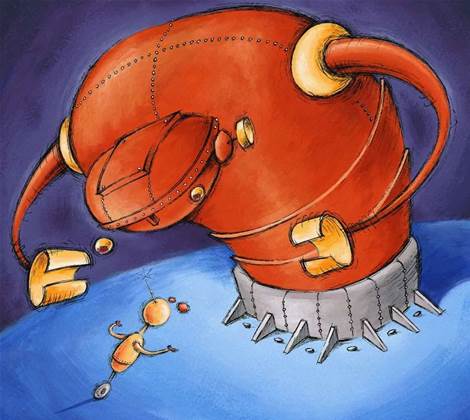
"This is an operational security issue, something we are taking very seriously," an official at Nato headquarters in Brussels told The Guardian.
"It goes to the heart of the alliance's modus operandi."
At this time there is no confirmation of the source of the attacks but there are strong indications that Russian hackers are responsible.
The attacks came shortly after the Estonian government removed the Bronze Soldier Soviet war memorial in the capital on Tallinn, a move which sparked protests at which one person died.
"The cyber-attacks are from Russia. There is no question. It is political," said Merit Kopli, editor of Postimees, one of the two main newspapers in Estonia which has been targeted and has been inaccessible to international visitors for a week. It was still unavailable last night.
The Russians have denied any involvement in the attacks.
"If you are implying [that the attacks] came from Russia or the Russian government, it is a serious allegation that has to be substantiated. Cyber-space is everywhere," said Russia's ambassador in Brussels, Vladimir Chizhov.
"I do not support such behaviour, but one has to look at where [the attacks] came from and why."
Estonia was annexed by Russia in 1940 as part of the Molotov-Ribbentrop Pact with Nazi Germany. It regained its independence in 1991.
A Nato official said: "I will not point fingers. But these were not things done by a few individuals.
"This clearly bore the hallmarks of something concerted. The Estonians are not alone with this problem. It really is a serious issue for the alliance as a whole."
So far the Estonians have tried to mitigate the attacks by banning all IP addresses from outside the country to support services for domestic users.

_(36).jpg&h=140&w=231&c=1&s=0)
_(28).jpg&h=140&w=231&c=1&s=0)







 iTnews Executive Retreat - Security Leaders Edition
iTnews Executive Retreat - Security Leaders Edition
 iTnews Cloud Covered Breakfast Summit
iTnews Cloud Covered Breakfast Summit
 The 2026 iAwards
The 2026 iAwards












_(1).jpg&h=140&w=231&c=1&s=0)



